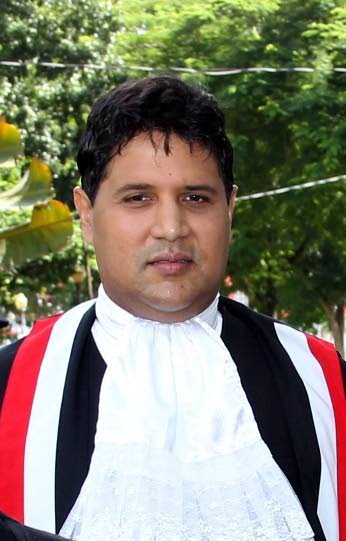Judge to rule on NIDCO's challenge of $850m award to OAS

A HIGH COURT judge has reserved his ruling on the challenge by the National Infrastructure Development Company (NIDCO) of the $857 million award of the international arbitration panel in favour of Brazilian firm Construtora OAS SA.
On Friday, Justice Frank Seepersad heard submissions by attorneys for NIDCO on why he would remit the award back to the arbitration tribunal for its reconsideration. He will give his decision on December 14.
NIDCO has argued that the High Court has the jurisdiction to send it back to the tribunal. It also made it clear its challenge was not an appeal of the award.
The company’s lead attorney, King’s Counsel Anneliese Day, argued that the court had the inherent jurisdiction to set aside the award and remit it because of errors in law made by the arbitrators.
Day went through the errors NIDCO is saying the arbitrators made in arriving at its decision in April. She also went through the evidence she said the panel failed to consider.
“There is a difference between what the court can look at, in law, and when considering the rationality of the conclusion.”
She said there were material aspects of the evidence which related to what was referred to the arbitrators for determination but were disregarded.
“...The tribunal came to an unreasonable decision so it was irrational.” She also submitted that the decision was one no reasonable arbitrator could have arrived at.
During Friday’s all-day hearing, NIDCO’s attorney went through the evidence it said the arbitrators did not consider, particularly as it related to its decision to terminate its contract with OAS, but this was rejected by OAS which has argued it would be unsafe and inappropriate for the court to pick out evidence at this stage.
“This is a very important public claim,” Day submitted.
Day also maintained NIDCO was not appealing the decision and gave reasons why it was asking the court to remit it back to the tribunal.
“This is not an appeal. I am asking you to say to them: ‘You didn’t deal with this and you should have. I am saying please send this back to the tribunal to deal with this (the evidence.)”
In resisting the challenge, OAS’s lead counsel, retired judge of the appeal court and the Caribbean Court of Justice Rolston Nelson, SC, said NIDCO was confused and conflated the common-law power to set aside an award.
He said there was no dispute that the parties had agreed to treat the award as final and pointed to the public interest aspect of going to arbitration to save the public from long-winded litigation.
“Parties come to the table and they want finality (of an issue)... The court should give deference to this in a commercial sense which is why they chose arbitration.”
It is also OAS’s position that the court’s jurisdiction was limited to errors on the face of the award and Nelson said that even if there was an argument that the court can look at the rationality of the decision, it has to be limited to what is on the face of the tribunal’s award.
This is not an appellate process, he contended.
“Whatever the final and binding clause says about the supervisory jurisdiction of the court, the court has to look at natural justice…The supervision of the court remains…But to say an award can be set aside, that is after the final award is given, and (where) the parties had agreed to accept it.”
Nelson said it was “nefarious” for the parties to agree that the arbitration findings would be final and binding but after the outcome, to now say it is not final and binding.
He countered that “anyone can say anything” but NIDCO failed to provide particulars of what it is contending in its case.
“What are the facts that support this? The tribunal has said, ‘I considered all the facts and I have come to the decision I came to.’”
He said there was a “gross misunderstanding” of the issues by NIDCO.
“There is no erroneous point of law in the tribunal’s treatment of the evidence,” he maintained, as he called on the judge to “accept the findings of fact set out by the tribunal.”
“There is nothing unreasonable or irrational (with the decision).”
On March 11, 2011, NIDCO contracted OAS, under the former People’s Partnership administration, to build 43.5 kilometres of dual highway from San Fernando to Point Fortin for $5.3 billion.
On July 6, 2016, the contract was terminated. NIDCO was able to recover $670 million in 2016 in letters of credit and bonds from a number of banks that had provided guarantees for OAS in previous litigation.
In April, the tribunal – comprising arbitrators Andrew White, KC, Adam Constable, KC, and John Fellas – ruled that NIDCO had to pay OAS a total of US$126 million ($857 million).
In its challenge, NIDCO contends it was not in default of any payment and it was OAS which faulted the contract by failing to remain mobilised on site.
Also representing NIDCO are attorneys Marcelle Ferdinand and Jason Mootoo while attorneys Gregory Pantin and Miguel Vasquez appear for OAS.


Comments
"Judge to rule on NIDCO’s challenge of $850m award to OAS"